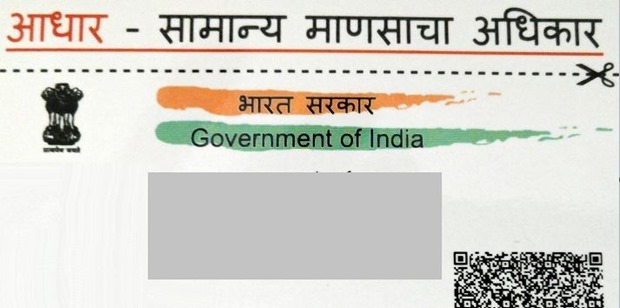Aadhaar Card Giving Rise To Increasing Online Frauds In India; Should Mobile Wallets Encourage Its Usage?

As of August, 2015, Indian Govt. has spend close to Rs 6000 crore to issue Aadhaar cards for 90 crore Indians. But it seems that a new breed of online fraudsters are fostering on the vulnerabilities of this identification tool, and siphoning off the hard earned money via illegal methods.
Considering that majority of these new Aadhaar card holders are new, first time bankers, they are falling easily for these tactics, and losing their money.
In fact, as per a report published by TOI, it was revealed that Hyderabad alone is getting 20 cases a day, related to Aadhaar card frauds. 40-50% of those who are scammed, are not even aware of this new cheating mode.
Cyberabad police’s Cyber Wing inspector Md Riyaz said, “We suspect that they could be either former or serving call centre employees. Using the confidential details of customers, money is siphoned off from the accounts of the victims,”
The Modus Operandi
As the investigative officials have discovered, there are two different ways these fraudsters are attacking Aadhaar card holders.
In the first case, a tele-caller will call you up with this script: “Hello, sir/madam, the bank has decided to link your Aadhaar number with debit card for better customer service.”
Gullible customers will happily provide them with the details they are asking; and very smartly, the fraudsters will extract details of CVV number and expiry dates (which are only known to the customer).
Immediately, these fraudsters will generate an OTP, which is received by the victim instantly. Now, the OTP will act as a further trust factor for the victim (especially the ones who have never done OTP based transactions), and they will share that as well. They think that the OTP will be used for linking their bank accounts with Aadhaar card.
Once OTP is generated and shared, the fraudsters use various ecommerce portals to purchase as many products as that 5 to 15 minute window of OTP validation provides. By the time the victims understand this, his/her bank account is debited with thousands of rupees.
The other way to trick bank customers is to ask their alternate number; and an OTP is sent to that in order to make the victim believe that indeed their bank accounts and Aadhar card is being linked.
Should Mobile Wallets Use Aadhaar Card As KYC Tool?
Freecharge has recently announced that they will be using Aadhaar cards as primary KYC (Know Your Customer) tool to validate and authenticate first time users. In fact, as an incentive, Aadhaar Card enabled wallets can have balance upto Rs 1 lakh, instead of Rs 10,000 for non-Aadhaar Card holders. Aadhaar Card holders would also be provided with door-step KYC verification by Freecharge.
Other mobile wallets such as Paytm and Oxigen have been using Aadhar card based verification since long.
In view of the recent frauds done on Aadhaar Card users, it may be advisable that mobile wallets in India display caution, while encouraging Aadhaar card usage. Although it’s not Aadhaar card which is in fault; but it’s the ignorance and vulnerability of the customers due to less information and awareness, which leads to the frauds and scams.
The customers, most of whom are first time bank and Internet users, need more training, information and awareness about the digital payment structure, and methods.
Here are some more instances of Aadhaar card frauds: Vadodara scam, Pension fraud, Another case in Hyderabad, Punjab fraud.

It should use in mobile ballet also. As per my suggestion government should make one api so that each service provided should use that
[…] all data pertaining to that person using this app? Last year in October, we had reported how Aadhaar Card linked identity frauds are increasing all over the country, and how old age people are scammed into giving their details […]
If the scamsters are using details to shop from ecommerce sites they will be easily caught by police as they are giving a good hint to chase them.